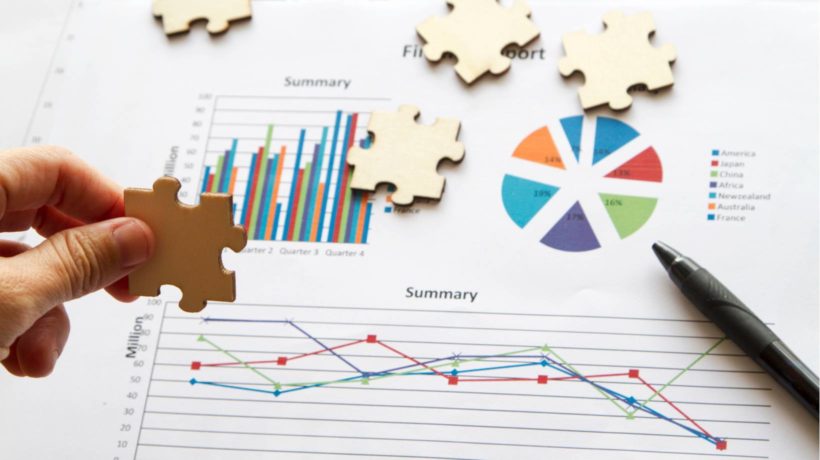What You Should Ask During Training Needs Analysis
When it comes time for a training needs analysis, it's important to map out all the steps properly to ensure you are following the process to the best of your abilities and achieving the best results.
Here are the 7 main questions you should be asking yourself to ensure you are getting the most out of your training needs analysis.
1. What Are Your Company's Goals For The Year?
The first stage of any training needs analysis process is to sit down and think about the company goals for the year that you want to achieve to drive success in your business as a whole.
You may already have set your company's goals, or this may be something that you integrate into your training needs analysis process, but either way, it's important to ensure this is always the foundation of the whole process.
Your goals should be SMART goals and ones that will help your business grow and achieve more success over the coming year. Therefore, you will want to create them in conjunction with your wider management team, as well as management from individual departments, to ensure the needs of the entire business are covered.
2. What Needs To Change In Your Company To Meet These Goals?
Now that you know what your company goals are for the year, the next stage of the process is to think about what changes you need to make in your company to meet those goals.
This could include changes to staff skills, team structures, software and tools you use as a business, the type of customers you are targeting as a business, the processes you currently following, etc.
3. What Skills Do Your Staff Need?
One change that will be a big part of your training needs analysis is the skills that you need your staff to have in order to meet your new company goals. This could mean things like learning to use new tools that you bring on as a business, learning to work in a new team structure, taking a different approach to a current process you have in place, interacting with customers differently, training staff up for newly created roles or to get ready for promotions, etc.
It's important to take the time to map out all the required skills you need your team to have in place to ensure you meet your goals, so you can make sure you have everything you need before you start tackling the process properly.
4. What Skills Do Your Staff Currently Have?
The next stage of the process is to look at all the skills your teams currently have, as it may turn out they already possess a lot of the skills you require them to have. Go through the entire business, team by team, and mark out all the skills each person has.
5. What Knowledge Gaps Exist Within Your Team?
Once you know what skills you want and what skills you already have, it's really easy for you to spot any knowledge gaps in your business. These will be the skills that you need which your team has not been trained on yet.
You'll need to prioritise these and decide which ones are the most vital to tackle first, and which ones could wait a little longer. New skills that involve larger groups of people may take priority because the training will take longer to organise and ensure it's all complete.
6. What Training Will Help You Close These Training Gaps?
Next up, you will need to start planning out the actual training sessions that will close these knowledge gaps. Obviously, you may not be able to tackle every knowledge gap present in your team with training, but the ones you can do something about should be targeted with training sessions.
Work with your training budget to see how much training you can complete in the year, and as we said above, think about priorities and deadlines when scheduling your training, as some training sessions may prove more important than others.
7. How Often Will You Repeat The Training Needs Analysis Process?
The last question you want to consider when it comes to training needs analysis is how often you will repeat this process to ensure the most success for your business. It makes sense to repeat this process every year when you are setting your new business goals and planning your training for the year.
However, training needs analysis can be seen as a massive time investment, so we can understand why you may not want to undertake the process every year. It's important to go with what works best for your business and use that in the future.
Editor's Note
At eLearning Industry, we believe that asking the right questions is one of the most overlooked parts of any training process and building an effective strategy. Before creating any plans, you need to think clearly about what actually moves the needle and where your business is heading. Start by reflecting on your company's goals to understand how your training programs need to change to meet them. From there, a well-structured assessment can help you take stock of which areas need attention. Skill audits, team check-ins, and structured questionnaires can uncover gaps. Offering a specific example or scenario to employees when you ask about their needs can also help them respond clearly.
Clear answers from employees often carry more weight than assumptions or top-down directives. Their feedback also ensures that training programs are relevant and timely. This kind of focused review strengthens the connection between learning and performance. Across departments, the most effective approaches tend to be those that prioritize people over processes. Sitting down for an interview with a team lead or providing thoughtful questions in a targeted survey often uncovers patterns that can't be identified by looking at a spreadsheet. Managers and leaders can avoid missteps by taking the time to consider this feedback before making a decision. They can improve engagement and results by conducting a training needs analysis to guide development. By asking the right questions early on, companies can design training programs that are both timely and strategic.







